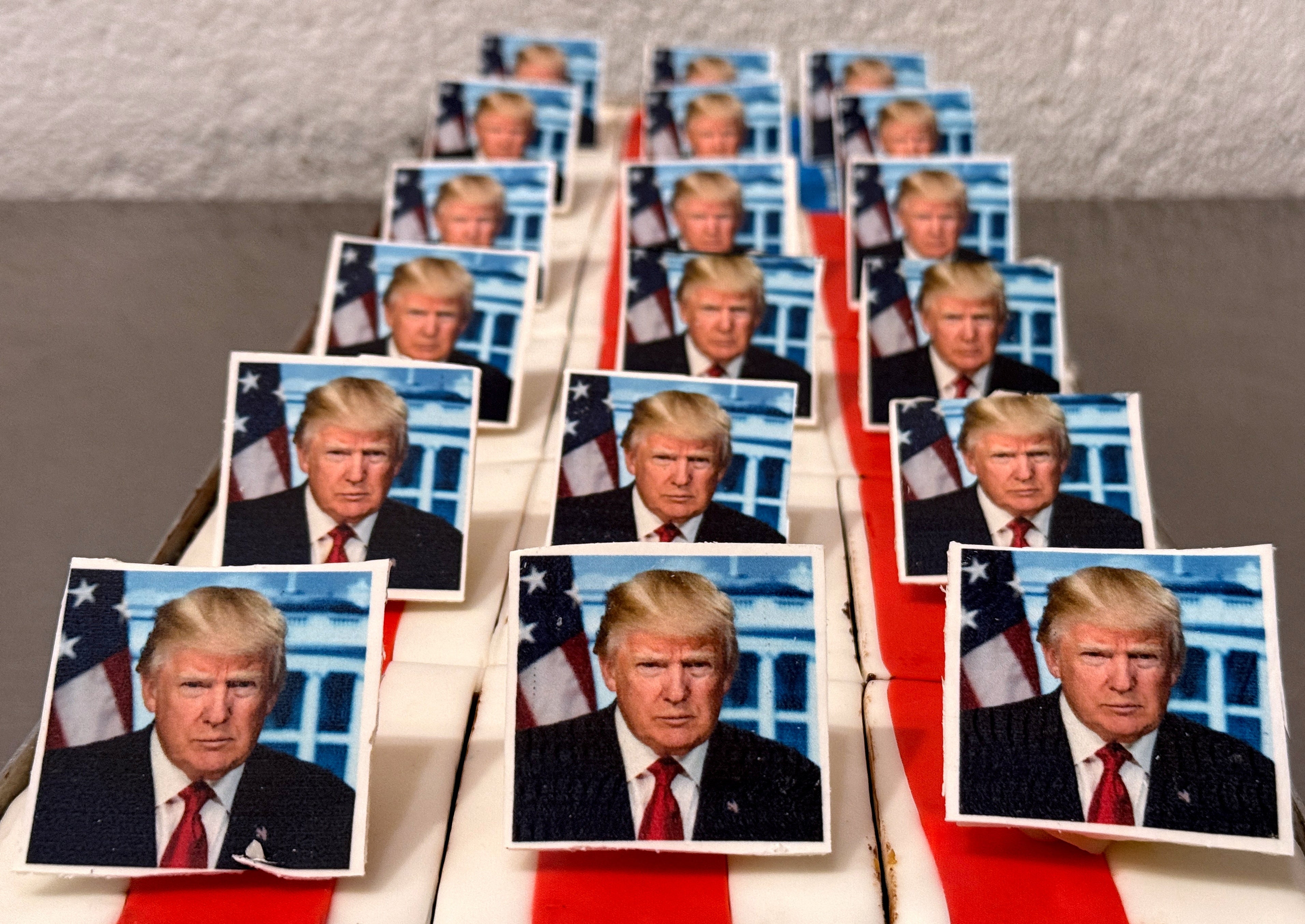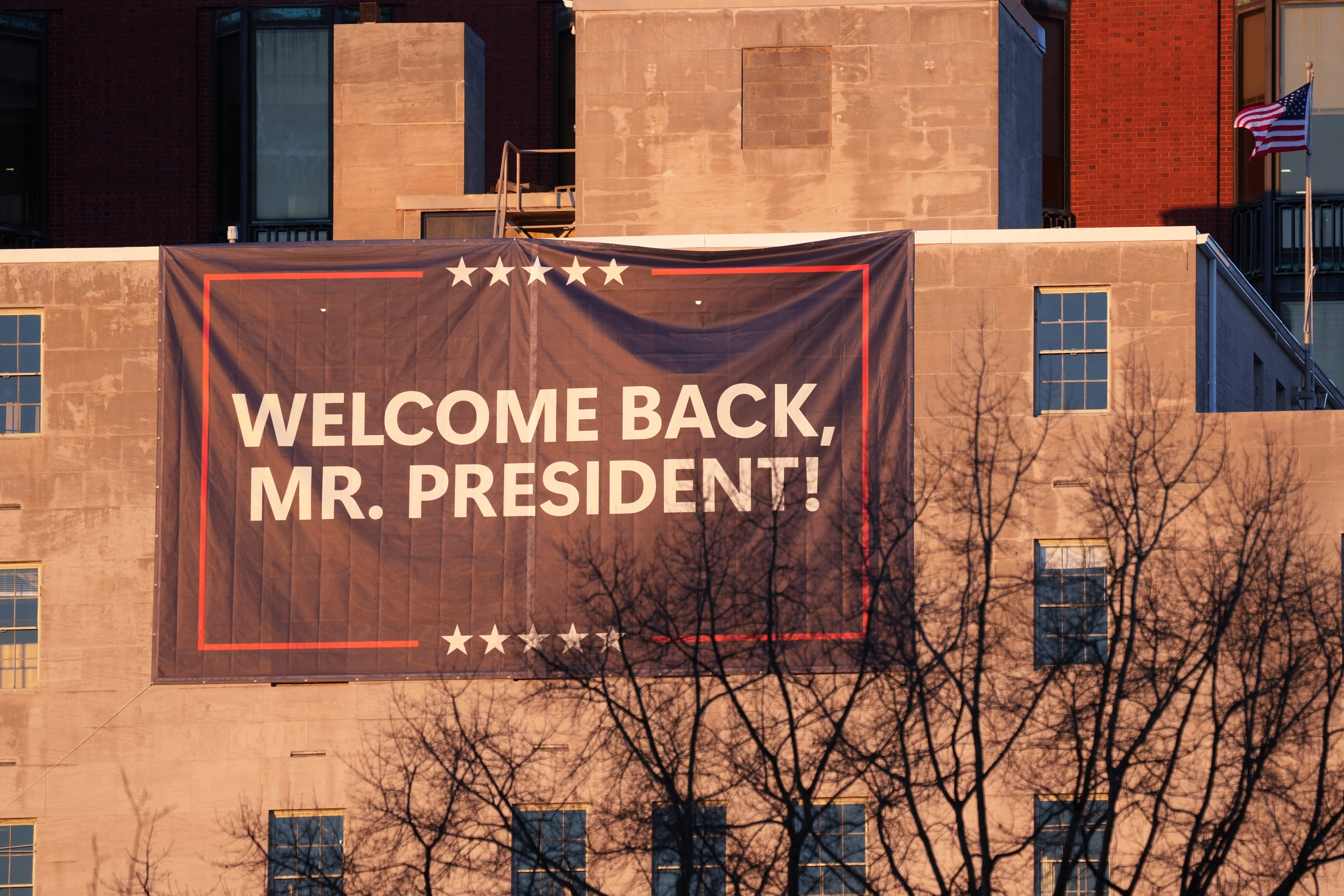What does Donald Trump’s second term mean for the markets?
Wall Street cheered his election victory but is more nervous now that he is back in the White House. James Moore looks at the potential market impact of the 47th president


Trump’s train is on the tracks and ready to go. Will it be a super-fast express, rocking and swaying like Brad Pitt’s Bullet Train as those onboard fight each other? Or will it be a smoother journey?
Nobody is entirely sure what Trump will do next, but this administration is better prepared – far better prepared – than last time. If Trump wants to be an agent of chaos, he’s more equipped to do so.
Perhaps the most important area to watch, from Britain’s perspective, is the bond market. Trump’s tax-cutting and spending plans require him to issue a lot more debt. When a seller floods the market with product, the advantage is to the buyer who can demand a better deal; and remember, the United States is already the world’s biggest seller of IOUs.
The term “bond market vigilantes” is making a comeback. It first emerged when Bill Clinton was elected in 1992. Like Trump, he swept into power with a strong electoral mandate, but Clinton found himself having to raise taxes and cut spending because, so the theory went, a small number of bond traders said no to his plans.
In reality, markets are bigger than a few traders. They include large numbers of institutional investors, some sovereign, some private, and are driven by the majority view among those investors, who are motivated by their own best interests rather than politics. But Trump could still run into the same problems as Clinton if they baulk at his plans.
After all, America’s debt is twice what it was in 1992 and, as in Britain, pushing 100 per cent of GDP. If projections are to be believed, it could easily end up exceeding the levels reached during the Second World War.

Trump has promised an aggressive programme of cuts to government waste to help fund his plans, with assistance from BFFs Elon Musk and Vivek Ramaswamy, the co-leaders of the Department for Government Efficiency (Doge).
But Ramaswamy is reported to have worn out his welcome and is considering a run for governor of Ohio. Besides, Doge will not – despite its name – be a proper federal agency, merely a source of “advice and guidance from outside of government”.
It is very easy for politicians to talk about cutting waste, but history tells us that it is much harder to achieve in practice. Real savings would come from cutting public spending such as entitlements, but that doesn’t tend to go down well with voters. At least part of the reason for the recent bout of distemper on the bond markets was due to concern over what Trump’s second administration might actually do.
Shares responded more positively to Trump’s election victory, at least at first. Wall Street loves deregulation and promises of lower taxes. Then there was the billionaire boys club of Mark Zuckerberg, Jeff Bezos etc seeking favour, and pledging fealty to the new administration; very different to what happened with the first Trump presidency. But Wall Street’s post-election party did not last long, with America’s main benchmarkets – the S&P 500, Nasdaq Composite and the Dow – giving up much of the gains they posted in the immediate aftermath of November’s result.
Some of Trump’s plans, particularly his much-discussed import tariffs, could prove highly unpopular with his corporate pals, particularly those with complex overseas supply chains. Onshoring them is not something that can be achieved overnight and will be costly; those increases will be passed on, stoking inflation.
There have been conflicting reports about how they will work. China, Mexico and Canada are first in the firing line. The UK government fondly imagines it will be spared. (“And the lemonade springs and the bluebird sings in that Big Rock Candy Mountain”, as the song goes.) If Keir Starmer can somehow secure a deal, it would count as a significant achievement; don’t imagine it will be easy.
If a global trade war triggers higher interest rates, the result will be higher borrowing costs – bad news for export-heavy sectors in Britain and Europe.
On the flip side, sectors such as banking and natural resources will get a boost from Trump’s deregulatory instincts. The UK stock market will be favoured by the latter, with its heavy natural resources component. Cryptocurrencies are also in vogue thanks to Trump’s enthusiasm.
And don’t forget gold, a more traditional hedge against uncertainty and inflation. Gold could be a hotter ticket than Taylor Swift’s Eras Tour.
Join our commenting forum
Join thought-provoking conversations, follow other Independent readers and see their replies
Comments
Bookmark popover
Removed from bookmarks